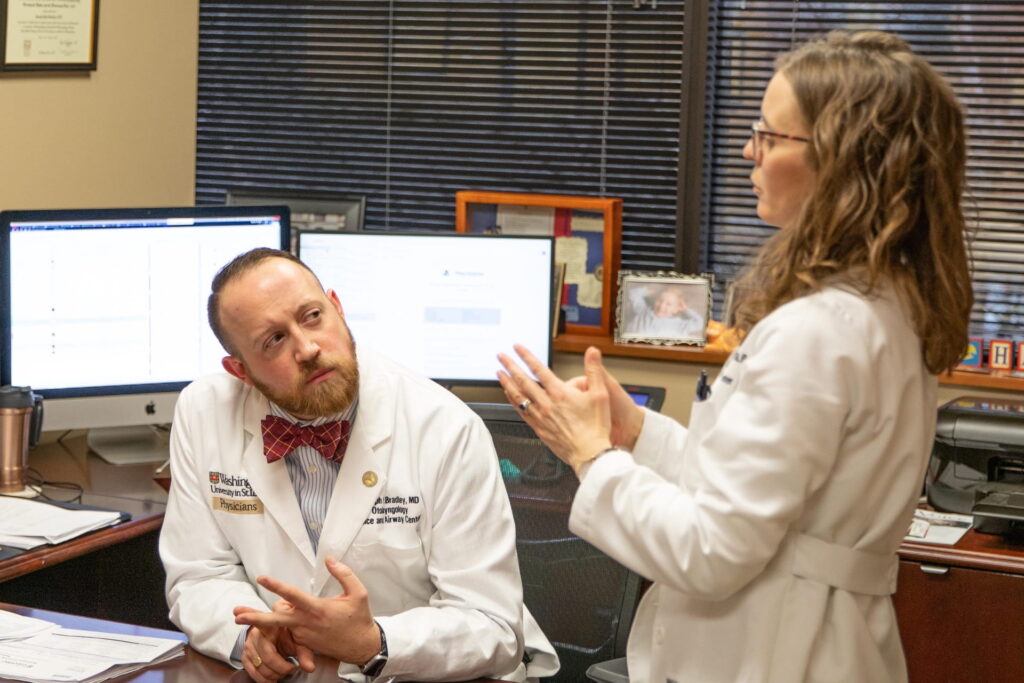Washington University School of Medicine redesigns the path to become a doctor, and voice specialist Dr. Bradley is there to help.
Medical School is much more than learning the science, according to otolaryngologist Joseph P. Bradley, MD.
“It should be about fostering the individual’s identity of what makes someone a doctor from their first day of medical school,” says Dr. Bradley who specializes in voice, laryngotracheal and swallowing disorders.
That’s why Washington University School of Medicine is developing a new curriculum for medical students, to give them immersive, clinical experience in their first year, instead of training them in the classroom for the first two years and then introducing patient care in years three and four.
And that’s also why Dr. Bradley is excited to be on the team to help design this new path to becoming a doctor, called the Gateway Curriculum. Dr. Bradley and his team are developing the most effective way, from day one, to build clinical skills and provide immersion experiences within settings ranging from ambulatory to clinical to surgery.
“With this change, our students will have the confidence they need to enter whatever type of residency program they desire and know from day one that they can take care of patients in the best way possible,” says Bradley.
More than 100 people from throughout Washington University School of Medicine are participating in the curriculum design, which is led by Eva Aagard, MD, senior associate dean for education and the Carol B. and Jerome T. Loeb Professor of Medical Education at Washington University School of Medicine.
The new Gateway Curriculum is expected to be introduced to first-year medical students in 2020.
